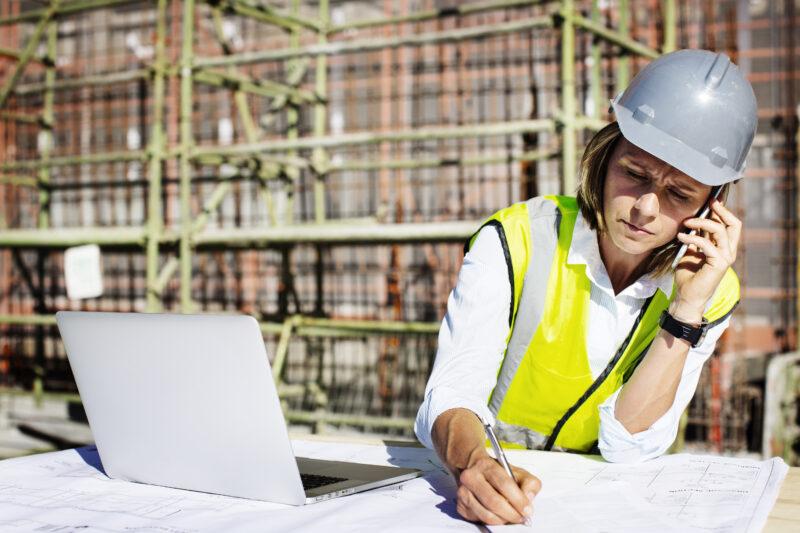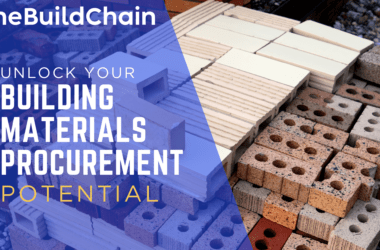The construction industry currently faces numerous challenges. Price inflation, product availability, and the need to hit net zero targets are all affecting the way we operate.
The future of construction procurement is likely to be shaped by advancements in technology, increasing emphasis on sustainability, and evolving industry practices. Here are some key trends and possibilities that may define how purchasing processes within our industry develop.
Digital transformation
The adoption of digital procurement solutions will continue to grow, enabling seamless collaboration, real-time data insights, automated processes, and improved efficiency across the supply chain.
Digital has the potential to revolutionise construction procurement by replacing traditional, paper-based, manual, and time-consuming processes with centralised dashboards, greater visibility, cost efficiencies and enhanced reporting capabilities.
Blockchain technology
Blockchain could transform procurement by providing transparent and secure supply chain management, facilitating smart contracts, and ensuring traceability of materials and products.
Sustainable and ethical procurement
Sustainability considerations will be central to procurement strategies, with an increased focus on selecting eco-friendly materials, ethical sourcing, and green supply chains. With statistics claiming that up to 90% of a business’ carbon emissions can come from its supply chain and increasing pressure from the public and the government to demonstrate what they are doing to minimise their impact on the environment, it’s becoming more and more critical for procurement professionals to adopt sustainable ways of working.
Supplier relationship management
Stronger emphasis on supplier relationship management will lead to strategic partnerships, improved communication, and joint efforts towards sustainable practices. Although there will be a move towards online, digital procurement platforms, those with purchasing responsibilities will seek out solutions that allow them to maintain the great relationships they have built with existing suppliers.
Diversification of suppliers
Organisations will seek to diversify their supplier base, including small and minority-owned businesses, to promote inclusivity and local economic development. Contractors will need solutions in place to allow them to properly assess not only available product and material options but also the location and business practices of the supplier they purchase from.
AI & data analytics
Artificial intelligence (AI) and data analytics will play a larger role in procurement decision-making, offering valuable insights into supplier performance, market trends and risk analysis.
Predictive analytics may also be utilised to help anticipate procurement needs, optimise inventory management, and forecast project requirements accurately.
Those with procurement responsibilities will need tools in place to help them easily collect the data they need to carry out their roles to their best ability.
Remote & digital procurement teams
Remote work capabilities will enable the formation of geographically dispersed procurement teams, allowing for global supplier evaluations and cost optimisations. Digital solutions will enable remote teams to work collaboratively in spite of distance and ensure they are all working from the same page.
Circular economy practices
Procurement will embrace circular economy principles, promoting reuse, recycling, and refurbishment of materials and products to minimise waste and environmental impact. This is closely tied to sustainable procurement which will only grow in importance in the coming years.
Government initiatives and regulations
Governments may introduce stricter regulations and incentives to encourage sustainable and responsible procurement practices. In the UK, The Procurement Bill is currently making its way through parliament and will reform the way the public sector procures. Meanwhile, large enterprises and publicly listed companies are already expected to report on their carbon emissions and this may be expanded to other types of business. Such legislative changes will undoubtedly affect construction procurement.
Risk management
Procurement strategies will incorporate comprehensive risk management to address supply chain disruptions, market fluctuations, and geopolitical uncertainties.
Summary
The future of construction procurement looks good. Efficiency, transparency, sustainability, and collaboration are all improving. Organisations that embrace modern procurement solutions will be better positioned to thrive in an ever-evolving construction industry.
Construction procurement with The Build Chain
Looking for an online construction procurement platform? We’re here to help. We connect Contractors nationally, with Suppliers locally via a centralised procurement dashboard that helps to deliver best value, increase efficiency and contribute to sustainability.
Book a demo today to see how we can help your business.





